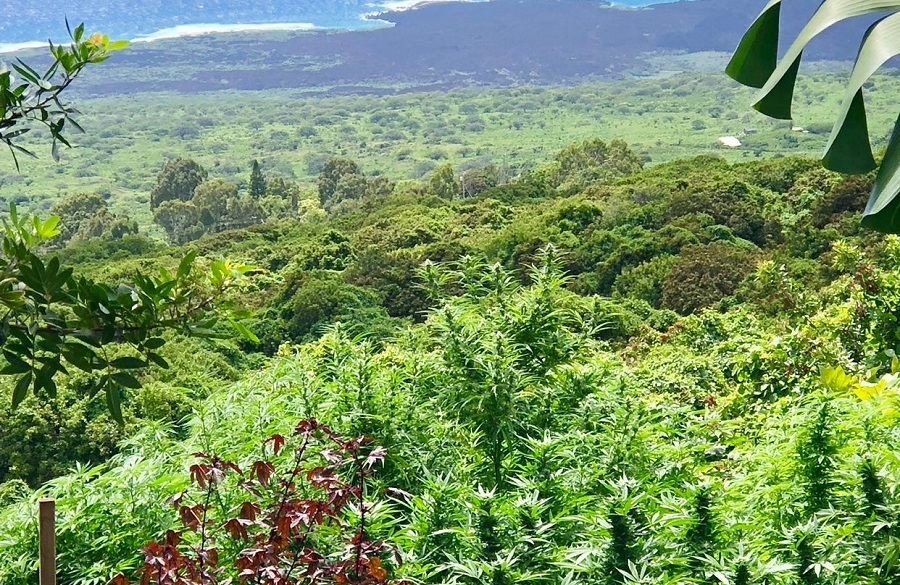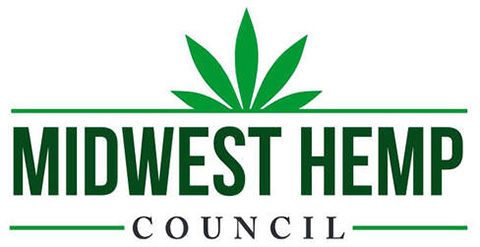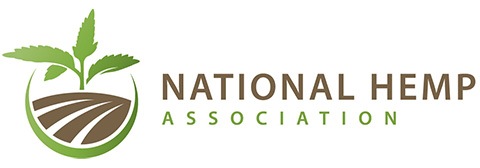
Despite a daunting legal, political, and cultural landscape for hemp-CBD businesses in the United States, industry stakeholders say American hemp has a positive reputation overseas and is steadily developing markets outside of North America. “There’s already a brand developing about American hemp due to its quality, the climate, and culture,” Jody McGinness, Executive Director at the Hemp Industries Association (HIA), told Hemp Benchmarks last year. “Building that brand will be the most significant thing to opening up those international markets.”
In a report issued last July regarding export market development, the National Industrial Hemp Council (NIHC) estimated that exports of U.S. hemp and hemp derivative products exceeded $1.8 billion in 2020, up from $310 million in 2019. The report added that demand for hemp fiber, grain, and oil continues to rise dramatically “despite the challenges of the pandemic and regulatory uncertainty in both the U.S. and abroad.”
The NIHC report also projected that the cultivation and production of hemp-derived cannabinoids and flower will decline as the U.S. hemp fiber and grain sectors mature. That said, there does appear to be a growing overseas market for U.S.-grown and produced CBD and other cannabinoids.
Overcoming a Challenging Market to Expand
While numerous American hemp-CBD companies have pulled back on production or even exited the market, one in Hawaii is setting its sights on expanding its brand in the Continental U.S., while also developing markets in East Asia. That company, Maui CBD Prime, is a vertically integrated producer and retailer of Hawaiian-grown CBD and CBD products. Maui CBD Prime started online in 2017 and opened its first brick-and-mortar retail store in 2020. It has three locations in Hawaii and, according to company President and founder Jon Graham, its hemp cultivation acreage has grown five-fold compared to where it was five years ago.
Maui CBD Prime is preparing to open stores in both California and Texas by autumn of this year, and is also looking at a location in Arizona. Despite a challenging market, Graham believes his company’s products, as well as its distinct location and backstory, will help the brand. “Our farms are in the … Maui Wowie region, [named after a famous marijuana strain], upcountry in Maui, with its famed cool air. All our farms are hand-harvested, they’re no-till soil,” he said. “Our climate and soil … gives us a product that’s hard to compete with. We also have the fact that we’re in this to support the local farmers here.”
According to Graham, hemp cultivation is being recognized as a financial plus for Hawaii, and another way for the state to further diversify its tourism-dependent economy. Despite its geographical remoteness, as well as the ongoing pandemic, Graham said his company has had few to no supply chain issues over the past several years. “We’ve had advanced notice of issues,” he said. “Since we are so vertically integrated there are not a lot of components that fall outside of our control, so we really haven’t been affected by that a whole lot.”
While transportation costs are a large part of the company’s overhead, Graham said those costs have not affected Maui CBD Prime’s bottom line. Product pricing, he added, remains in line with industry standards. “We don’t discount products, we don’t go down that road, so we are able to sustain the current business model.” The company’s shipping practices will, of course, have to evolve once its California and Texas stores open. “We will have a fulfillment [distribution] center on the mainland, and [will send] bulk shipments to there,” he said.
Looking Westward to East Asia
Graham said his entry into the hemp sector was accidental. His professional background was in manufacturing and hospitality, establishing factories and restaurants in Asia, Europe, the Caribbean, and elsewhere. Graham lived in Japan for over 13 years and owns a home in Thailand. “I actually moved to Maui to retire,” he remembered. Looking westward from Hawaii, Graham realized several East Asian nations were very viable, potential markets for his company’s hemp products.
Liberalization of cannabis laws are helping those prospects. For example, in February Thailand officially dropped cannabis from the country’s list of controlled drugs, putting the country on a path that could make it the first Asian nation to decriminalize the plant, possibly as soon as June of this year. While recreational use of marijuana remains illegal, Thai officials have acknowledged the need to remove the stigma surrounding cannabis, and hemp in particular. “Cannabis actually has plenty of medical benefits, not different from other herbs,” Thai Public Health Minister Anutin Charnvirakyul was quoted as saying by Associated Press, “and we are trying our best to make the Thai people enjoy both [the] medical and economic benefits from it.”
Graham said the new regulatory landscape has touched off a CBD craze in Thailand. “If you walk in Bangkok, every coffee shop and pizzeria touts the fact that their products have been made with CBD,” he said. “Once legislation passed, everyone now openly markets it.”
Marketing CBD to Consumers in Asia
Another reason for hemp’s widespread approval in Thailand and other Asian countries is the plant’s historic use in traditional medicine. “This is part of the marketing boost,” Graham said, “that this is a plant that traditionally we used in the past as part of ancient medicines, herbal medicines. I think that’s why the acceptance was so quick.”
“Also,” he added, “the Millennial generation in Japan has been quick to gravitate to natural alternatives for dealing with the issues that they’ve been dealing with, such as stress.” While Japan still has very strict laws regarding all forms of cannabis, hemp-derived cannabinoids have gained popularity with some consumers there over the past several years. From Graham’s point of view, he has been pleasantly surprised at how quickly Japanese consumers have accepted hemp and hemp products. He noted that one of the best-selling CBD products in Japan are vape pens. (Japanese law requires CBD extracts to be made from THC-free hemp stalks and stems.)
The popularity of vapes there, Graham pointed out, is not just due to the nation’s notoriously high levels of stress. On average, he said, Japanese smokers spend about $180 a month on cigarettes. Graham explained, “they figure that by smoking hemp that will bring down their monthly [smoking] budget to about $130. So it’s economically driven.” Maui CBD Prime is also looking at establishing a foothold for the business in South Korea, although those plans are several years down the road.
Planning, Persistence, and Patience
While the markets may be there, Graham warned that the actual exportation of U.S. hemp to Japan, Thailand, and other East Asian countries requires a lot of planning and persistence. He advised potential exporters to devote anywhere from six months to a year in preparation for such an effort. One of the major challenges, he said, is providing the proper documentation of the hemp and hemp products intended for export to government agencies and officials.
“Getting product over there, having them evaluate it, proving to them that you’re following the processes,” are some of the steps for approval Graham outlined. “They’ve got to be absolutely convinced that you’re doing exactly what you say you’re doing. [And] your patience level has to be next level, everything is 120% by the book, no deviations. They can take literally forever to give you a response.”
That said, Graham noted that once a decision is made by officials, “it can be implemented immediately. It’s the reverse of the U.S.” He has also found that once a product is accepted by Asian consumers, word-of-mouth networks can quickly boost sales: “Once word gets out that your product is one of the top products out there, then everybody will be buying it overnight. That’s really the reward of putting in that [documentation] time, up front.”
Related Articles:
- Where Does the U.S. Hemp Industry Go From Here? (May 11, 2022)
- Hemp Derived CBD & THC Sales Trends in 2022 (May 4, 2022)
- Is a No-Till Approach Right for Hemp Farming? (November 10, 2021)
- What Does the Hemp-CBD Market Look Like from a Processors Perspective? (September 15, 2021)


